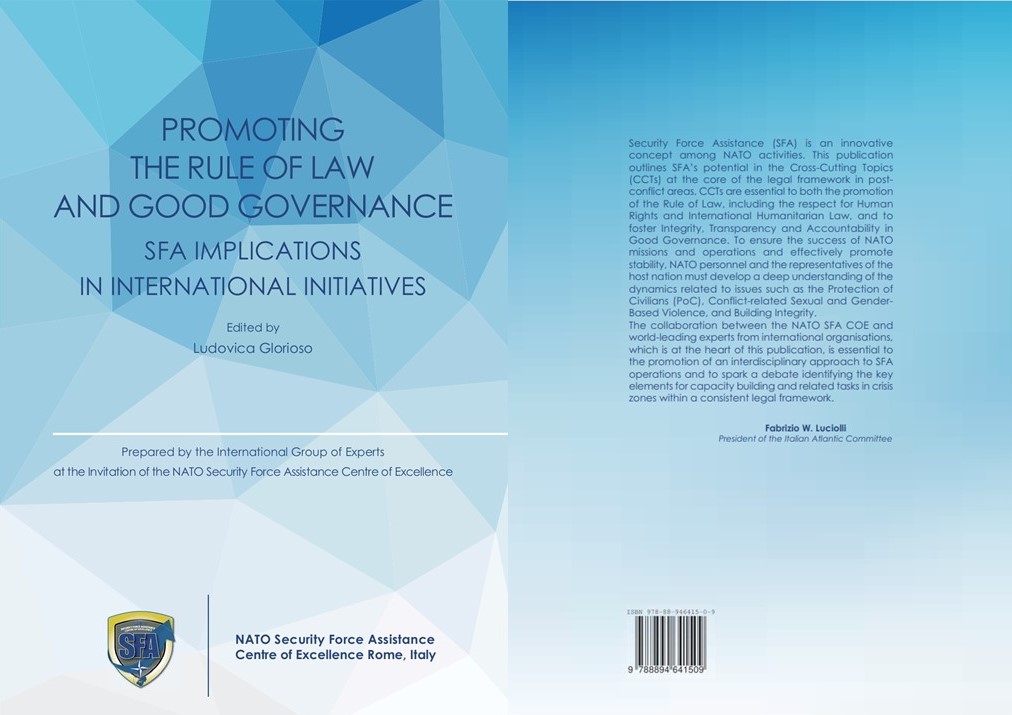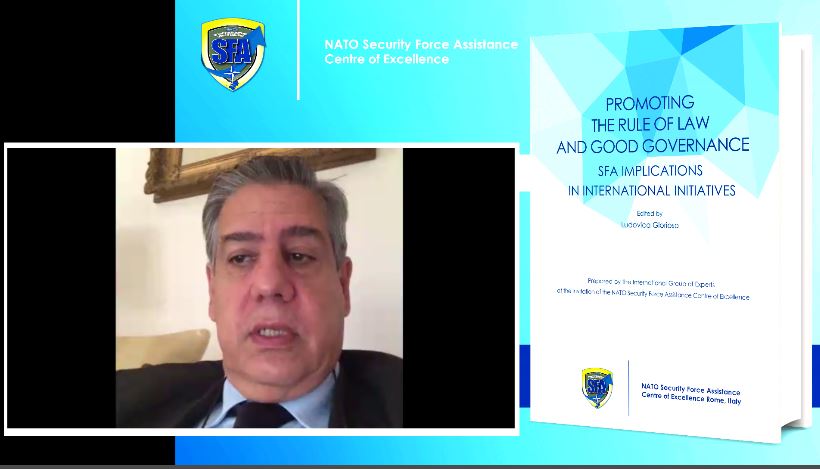On the 30th of September the NATO SFA COE launched the first editorial project titled “Promoting the rule of law and good governance- SFA Implications in International initiatives”.
The Director, Col. Massimo Di Pietro, in his keynote speech emphasised how the radical change in the international landscape in recent years and the increasingly frequent rift between political, economic, social and geographic powers has had a profound effect on military capabilities, structures and doctrines. In addition, he remarked that SFA activities are not only limited to the provision of training but are part of an articulated process to ensure local forces are competent, capable, committed, confident and accountable to create the necessary conditions for an orderly transfer of responsibility to local authorities.
This event was the follow up of the first Legal roundtable on the “Rule of Law for SFA activities in Crisis Zones”, which dealt with the main legal challenges within SFA activities, that took place two years ago (NATO SFA COE: Legal roundtable on “Rule of Law for SFA activities in Crisis Zones” – NATO SFA COE ® nsfacoe.org).
The discussion, chaired by Major Ludovica Glorioso, editor of the NATO SFA COE publication, was divided into three main Panels, where the authors analysed the strategic context of SFA Operations and the cooperation between NATO and the EU, the importance of tailored legal training and the development of International Organization programmes such as Disarmament, Demobilization and Reintegration (DDR) and Building Integrity (BI).
The Panels, introduced the distinguished moderators Abigail Watson, Daniel Prins and Steven Hill, reflected the book’s structure, divided into three main sections for a total of 10 Chapters authored by practitioners affiliated to major International Organizations and based on an interdisciplinary approach.
The first section of the publication provides a framework for the strategic context of SFA operations and offers a practical guide to the adoption of the peacebuilding approach in fragile states. In this framework, the analysis is also focused on:
- the cooperation between NATO and the EU;
- the conditions on which training local forces can enforce IHL (International Humanitarian Law) based on ICRC best practices;
- an overview of the UN approach to DDR concerning SFA.
The second section of the publication focuses on the importance of Human Rights and International Humanitarian Law. This part deals with the evolution of the NATO approach to the Protection of Civilians (PoC), but also with the impact of different security partnership models on the PoC. A chapter is also dedicated to the main measures applied to face sexual and gender-based crimes and the role of the International Criminal Court.
The last section refers to the relationship between state fragility and corruption, in particular focusing on security sector transformations. The authors highlight the importance of promoting transparency in order to avoid corruption, and the centrality of the work of the UN in addressing this issue. Finally, there is a focus on the NATO engagement in Building Integrity (BI).
The book has brought together the varied viewpoints of distinguished experts and peer reviewers, encouraging an interdisciplinary approach and a productive discussion aimed at identifying key elements for developing capacity building and related activities in crisis zones. In this respect, the existence of a consistent legal framework is an essential premise for a durable and stable environment in fragile states.









